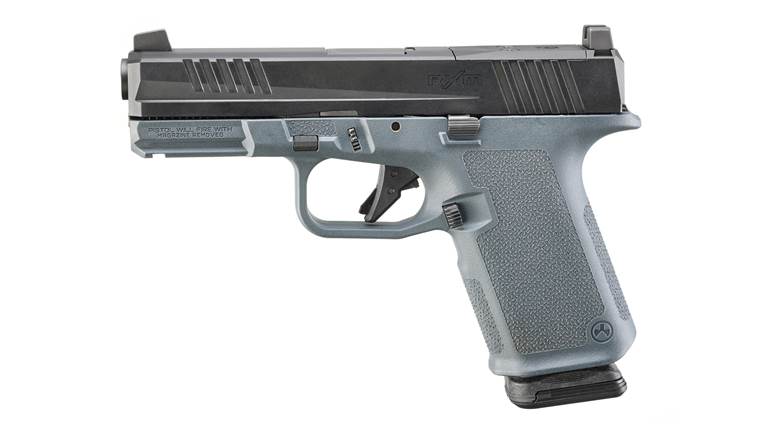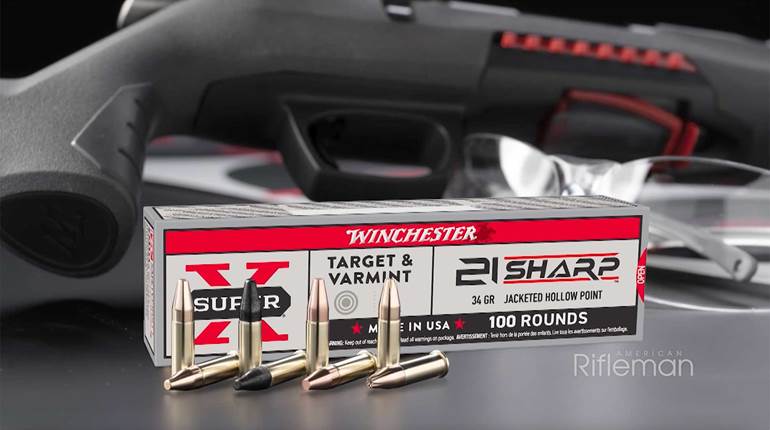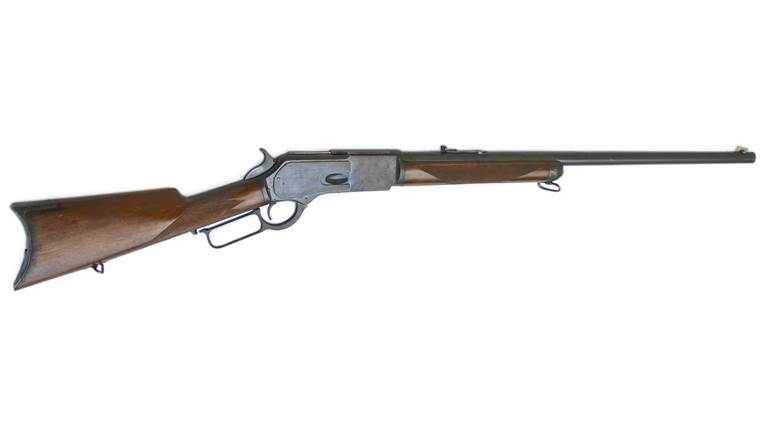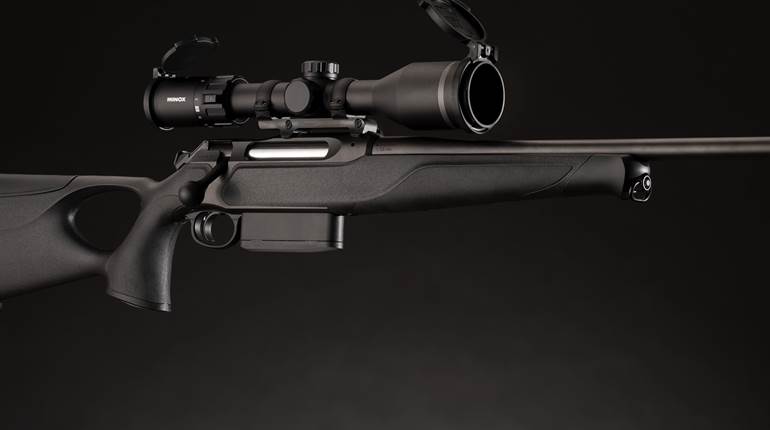
As we celebrate the 100th birthday of the M1911 pistol, it’s understandable that we might pause to reflect on the history of what I consider to be the finest fighting pistol ever invented. John M. Browning designed the big semi-automatic for our military, and it was the U.S. military-issue handgun through quite a few decades and several wars. Since its debut, the M1911 has also become a top choice for American peace officers and armed citizens. I’ve been shooting it for 50 years and have carried one nearly every day for the past 40 years.
Back in my early days with the big .45 auto, the guns had diminutive military sights, stiff triggers and feed ramps shaped to take only military hardball ammunition. A competent pistolsmith was needed to correct all of those issues, but doing so ensured that the gun realized its full potential as a defensive tool.
My, how times have changed. We currently have so many companies, foreign and domestic, producing versions of the M1911 that it is difficult to maintain an accurate count. Fortunately, most of the guns have decent sights and acceptable triggers and will chamber today’s high-quality defensive ammunition. It is encouraging to see firearm manufacturers making an effort to build the kind of pistols that are good to go right out of the box. A prime example is the long-rumored SR1911 from Ruger, which is the first such offering from one of America’s giants in firearm manufacturing.
Whispers about a possible M1911-style handgun from Ruger have been heard for quite some time, but about a year ago, I heard the company was giving serious consideration to actually making such a gun. Then I received an invitation to attend a writer event in December 2010 at Gunsite Academy in Paulden, Ariz., to see the results of the company’s work.
It turns out Ruger had been quietly quizzing shooters on their preferences for what a “good” M1911 should and shouldn’t include. Several of Ruger’s engineers are competition shooters and have a working knowledge of the platform. Ruger also called in some experts to help with the design. Wayne Novak and Charley Pulit (president of Novak Sights and a great pistolsmith in his own right) spent a good deal of time with Ruger engineers to design a pistol that had all of the features a great M1911 should have and none of the frills that are found on some of today’s pistols. Ruger’s studied approach produced an extremely useful M1911 pistol at a very reasonable price.
The Ruger SR1911 is a Government Model-size pistol in .45 ACP with a 5-inch barrel. Manufactured entirely of stainless steel—with no plastic parts—it weighs in at 2 pounds, 7 ounces. The slide and barrel are machined from bar stock, while the frame is a stainless-steel casting. The pistol is manufactured and assembled at Ruger’s plant in Prescott, Ariz.
The company has owned a separate casting company for decades and, among other products, has been casting M1911 frames for several other manufacturers. It has incorporated what it has learned about M1911 frames, and casting in general, into the new pistol.
Only the mainspring housing and magazine-release button are checkered. The trigger, which has a serrated face, is skeletonized and features an adjustable over-travel stop. The grip safety is a beavertail design with what has come to be called a “speed bump” at the bottom for more positive activation. The thumb safety, also serrated, is a trim, unobtrusive combat type that gives good purchase to the shooting thumb but is not so large as to get in the way. The hammer is a skeletonized, elongated rowel type.
Two features of the Ruger frame are of particular interest. The plunger tube, which serves the slide lock and thumb safety, is cast integrally with the pistol’s frame. On many other M1911 pistols this is a separate part that is staked on and can work loose. The second feature is a magazine release button that is slightly taller than standard, facilitating tactical and speed reloads.
The machined bar stock slide of the SR1911 continues the utilitarian approach that Ruger has used in designing the pistol. It is devoid of forward cocking serrations, a feature that I view as unnecessary. It has the traditional internal extractor and is topped off with a set of black Lo-Mount Novak fixed sights, which are some of the best to be found on today’s defensive handguns. The sights, front and rear, are set in standard Colt-specification dovetails. The SR1911 also comes standard with a titanium firing pin and lacks the accursed firing pin block found on some contemporary M1911s.
As to that last point, there has been confusion in the past that has resulted in some referring to certain M1911s as “Series 80” and others as “Series 70,” depending upon whether or not they had a firing pin block of the type employed on M1911 pistols manufactured by Colt. There were other differences between those series, so it would be far better to just say that the Ruger SR1911 does not have a firing pin block safety and let it go at that. The original idea of such a safety, by the way, was to keep the pistol from discharging if it was dropped directly on the muzzle. Today, a titanium firing pin with an adequately strong spring and adherence to basic handgun safety rules serves the same purpose and is a far better way to avoid that rare occurrence.
Overall, the basic fit and finish of the Ruger SR1911 are well-executed. The slide and frame have been properly mated to reduce friction and aid smooth functioning, and the all-stainless gun has a pleasing matte finish with no sharp edges.
Many of the SR1911’s important features are not readily visible, however. For instance, the extractor claw has been properly shaped to ensure reliable extraction of the spent cartridges. The barrel locking lugs have been snugly mated to the corresponding slots in the slide to allow the stainless barrel to lock up reliably and tightly. The same goes for the barrel bushing, which received the proper attention required for a precise fit with the barrel and slide, yet does not require a wrench for removal. Due attention to such tolerances is what separates good M1911 pistols from all the rest.
Participants at the Ruger SR1911’s rollout at Gunsite shot a number of the facility’s class drills, and there were few malfunctions with the pre-production pistols used there. Most of those were the result of the guns needing to be broken-in and properly lubricated. Those early guns had black rubber stocks, but the production test gun that I recently wrung out had a beautiful set of checkered wood stocks with the Ruger medallion in both panels. The upgraded stocks are an aesthetic change but a smart one, nonetheless.
One of my favorite Gunsite drills is called “The Duck of Death.” Two shooters stand side-by-side, 10 to 12 yards away from two steel silhouettes. At the command to fire, each draws to shoot his steel target before his neighbor connects. It sounds simple but really puts pressure on the shooters and, as you can imagine, increases stress levels considerably with each match. Drawing from my old Milt Sparks Yaqui Slide holster, I found that the SR1911 came to hand quickly and the Novak sights were quick and easy to pick up—proving an edge over opponents whose guns lack comparable features. The clean-breaking triggers on the guns, with pull weights between 4 pounds and 4 pounds, 8 ounces, were an aid to the surprise break and a quick hit.
I gathered five different brands of .45 ACP ammunition and headed to the range to test the Ruger for accuracy at 25 yards, firing five-shot groups using a sand bag rest. In addition to accuracy, I also checked for any malfunctions and for the gun’s ability to smoothly feed an assortment of bullet designs.
The tightest group I shot was with the Black Hills 230-grain JHP +P ammunition. That group measured 1.25 inches and was followed closely by the Remington 230-grain FMJ ammunition with a single group of 1.35 inches. All of the ammunition that I tested performed well within the boundaries required for personal defense, however. Following my accuracy and chronograph sessions, I suited up to see how it would perform during rapid-fire, multiple-target drills. During an early drill I fired controlled pairs (each shot sighted) from 7 yards. From the leather, each pair should be delivered within about 1.5 seconds, with all hits within the 8-inch vital zone.
Another defensive drill that I ran with the SR1911 is what Gunsite calls “The Failure Drill.” It was designed to deal with resilient bad guys high on a substance or, for some other reason, just do not respond to hits. In this drill, two shots are delivered to the center of mass, and then a third shot is delivered to the head to stop the fight. The interesting challenge to this drill is that the two center-of-mass shots should be fired as quickly as possible. The shooter must follow through, regain his front sight, and then deliver a precision hit to the head. Shooting is done from about 7 yards, and the first two shots should be delivered, from the leather, within about 1.5 seconds. Gunsite describes it in this manner: “The signal for the succeeding head shot is not automatic but comes from the understanding that the two body shots did not produce the desired result. The shooter must then snap to sight alignment and shoot one careful shot to the center of the head.”
Throughout these defensive drills, the Ruger SR1911 performed very well. This pistol, and the one that I initially shot at Gunsite, did not malfunction. I took the time in both cases, however, to lightly lubricate the slide rails and the barrel lugs before the firing sessions.
While we were shooting the pre-production pistols at Gunsite several of us noticed that the grip safeties were difficult to engage. I shoot high thumb—my shooting thumb riding on top of the thumb safety—during any string of fire. And, because my hand doesn’t have a lot of beef to it, I often have trouble with grip safety engagement. Nonetheless, I was having trouble getting the grip safety with about one out of every four shots. Fortunately, one of the Ruger engineers shooting with us experienced the same difficulty. He suggested that it had to do with how the internal parts of the grip safety engaged with the sear spring. Even better, he said he had a pretty good idea of how to solve the problem. In the production gun that I used for these tests, the issue was resolved, so he clearly knew what he was talking about.
The other issue that I have with the Ruger SR1911 is the three-dot sight system. Although it seems to be in vogue these days, I think it is useless and, worse, could get someone hurt. The deadliest defensive encounters are those that occur at close range. In these cases it is important to quickly acquire the front sight, deliver an aimed shot, and stop the fight. While a dot, or gold bead, on the front sight can be an aid in quick sight acquisition, dots on the rear sight may distract those who are unfamiliar with them. In a close-range fight, you don’t need to be worrying about lining up little white dots; you just need to find the front sight and get a hit sooner.
Ruger plans to offer a full line of accessories for its SR1911 pistol, including a black rear sight and ambidextrous safeties, in the very near future. And I suspect that the SR1911 is just the beginning of a family of Ruger 1911 pistols. The company is considering target-sighted guns, pistols with light rails and compact M1911s for future production.
In my view, Ruger took the right course in designing its initial offering in the M1911 series. Working with experts—both in house and out—Ruger has designed an accurate, reliable pistol that has everything a person needs and nothing that he doesn’t need. With two magazines and a zippered case, the all-American-made SR1911 is a solid value at $799—more importantly, it is a classy 1911 that is good to go right out of the box.
Manufacturer: Sturm, Ruger & Co, Inc.; (603) 865-2442; www.ruger.com
Caliber: .45 ACP
Action: recoil-operated, center-fire semi-automatic pistol
Frame: investment-cast stainless steel
Barrel: forged stainless steel, 5"
Rifling: six-groove; 1:16" RH Twist
Trigger Pull: single-action; 4 lbs., 8 ozs.
Sights: Novak Lo-Mount three-dot sights, drift adjustable for windage
Magazine: seven-round stainless steel, detachable box
Stocks: checkered wood with Ruger Medallion
Overall Length: 8.67"
Height: 5.45"
Width: 1.34"
Weight: 2 lbs., 7 ozs.
Accessories: zippered case, lock, manual, one eight-round-capacity magazine
Suggested Retail Price: $799






































